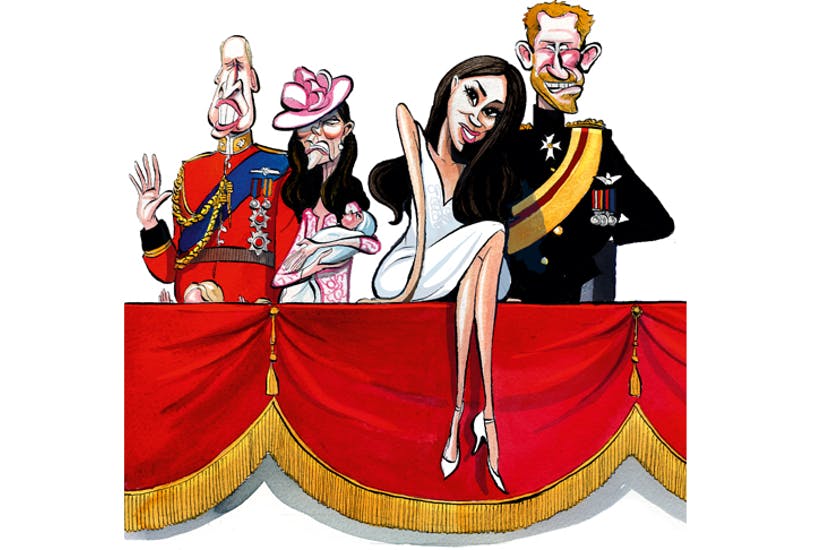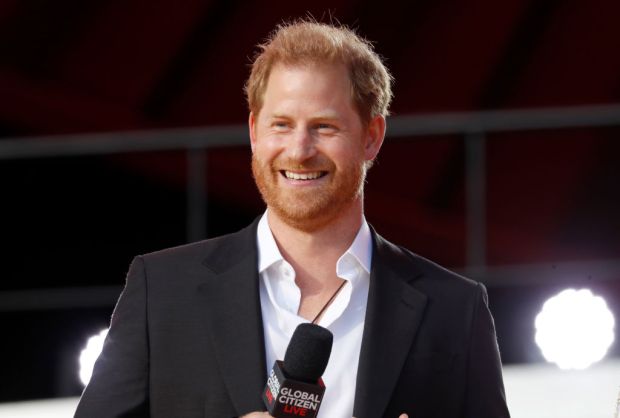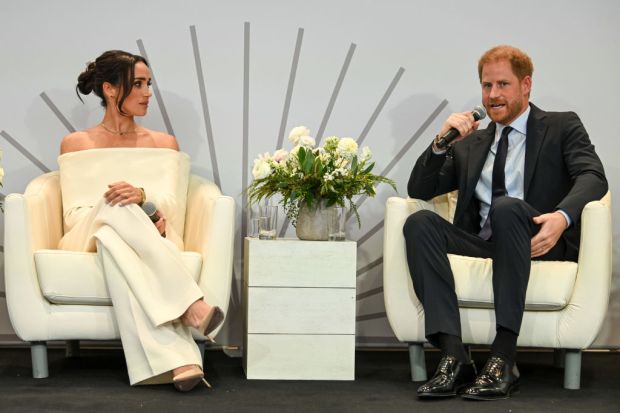Just when you thought Prince Harry and Meghan Markle’s collective victim complex couldn’t get any more vast and cavernous, up they pop again to make clear, in pained tones, just how persecuted this multimillionaire formerly royal couple believe themselves to be.
We already knew that their allies think ‘Megxit’ was all about racism. That their departure from the monarchy, freeing them up to cut lucrative deals in the United States, was forced by their supposedly racist treatment by the tabloids. Now we learn it was also all about misogyny, and that the term ‘Megxit’ is itself shot through with hatred for the Duchess of Sussex.
Speaking this week on an online panel, hosted by Wired, about disinformation, Prince Harry said ‘the term Megxit was or is a misogynistic term’. Apparently ‘it was created by a troll, amplified by royal correspondents and it grew and grew on to mainstream media but it began with a troll’.
Those of us who have been mindlessly repeating what we all assumed was a cheeky tabloid coinage are apparently complicit. This was just one example of how the internet is being ‘defined by hate, division and lies’, according to Harry, who is working with the Aspen Institute on a study of online misinformation and disinformation.
What Harry is gesturing to here has been known for some time — namely, that ‘Megxit’ was a thing in the murkier corners of the internet, years before the House of Sussex made their blow for independence. A Vanity Fair article published days after Megxit explained that the term had long been used by Markle’s more vociferous critics.
But we all know what Harry is trying to do here. He is trying to associate his wife’s perfectly reasonable critics with the unpleasant few who hate her for objectionable reasons. Indeed, this has been the prince’s approach from the very beginning, whereby any criticism or unsolicited coverage is painted as being all about racism or sexism.
Way back in 2016 — when most people were happy for the young couple, the coverage of them was generally fawning, and we hadn’t quite twigged how profoundly irritating these people are — Prince Harry issued a remarkable statement rebuking journalists for the ‘racial undertones’ of their pieces.
When Megxit happened the narrative was quickly forged that this was all the result of media racism even in the absence of any clear-cut examples of it. The same handful of quotes were wrenched out of context time and again and subjected to intense textual analysis to uncover their not immediately obvious racist intent.
That some even latched on to a line in a Sarah Vine column — in which she expressed her ‘niggling worry’ about the couple’s engagement photo — revealed just how desperate this exercise in post-Megxit offence archaeology was.
Here we see what has been clear for some time now: that identity politics is a gift to the powerful. The conviction that racism and sexism permeate everything, and that to challenge someone’s perceptions of bigotry is to blaspheme against ‘their truth’, has turned out to be incredibly handy to public figures and politicians keen to dodge criticism and demonise their opponents.
So when Hillary Clinton lost the 2016 election to Donald Trump, it was not because people just so happened to disagree with her, it was because they were all misogynistic ‘deplorables’. And when the British press and public turn against a royal couple who seem to want the fame and status of royalty without the obligation to keep their mouths shut, well that’s just racism and misogyny.
Even the words we use to criticise these people are painted as bigoted ‘dog whistles’. Indeed, while Harry was warning people off the word ‘Megxit’ this week, a debate was raging across Twitter about whether the word ‘woke’ is actually just a racial slur in disguise — even though many of the worst woke offenders in public life tend to be white and posh. (Hello, Harry.)
All the while these pampered victims lecture the rest of us about oppression from their gilded perches. According to the Daily Mail, it is not known how much Harry was paid for his appearance on the Wired panel. But last year, experts predicted he and Meghan could earn more than £1million per appearance, after they had signed to an elite speakers’ agency. In our topsy-turvy world, this is what oppression apparently looks like.
Got something to add? Join the discussion and comment below.
Get 10 issues for just $10
Subscribe to The Spectator Australia today for the next 10 magazine issues, plus full online access, for just $10.



















Comments
Don't miss out
Join the conversation with other Spectator Australia readers. Subscribe to leave a comment.
SUBSCRIBEAlready a subscriber? Log in